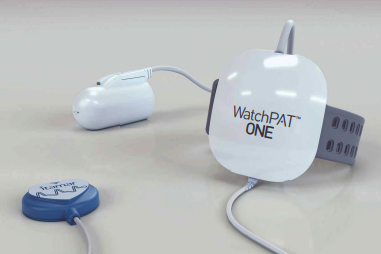Snoring & Sleep Apnea
Snoring occurs when the tissue in the back of the throat collides and is a sign of airway obstruction. Airway obstruction occurring repeatedly throughout the night is hard on the body and may lead to high blood pressure and heart problems. Patients with obstructive sleep apnea (OSA) typically report restless sleep and not feeling rested despite getting 7 or more hours of sleep. Studies have shown that patients with OSA have more difficulty concentrating and are more likely to be involved in motor vehicle accidents.
The most common risk factors for OSA are obesity and older age. Using sedatives and drinking alcohol also increases the risk for OSA. Patients who sleep primarily on their back are more likely to snore and stop breathing.
Anatomically, the tongue falling back into the throat during sleep is the most common area of airway obstruction. Enlarged tonsils and nasal blockage can also contribute to the narrowing of the airway.
Dr. Bowden is one the few ENT specialists in Houston who is board-certified in both Otolaryngology and Sleep Medicine. She is adept at identifying when testing is necessary and working with her patients to find the most practical treatment plan.
Sleep Testing & Diagnosis
Diagnosis begins with a thorough history and examination of the patient’s upper airway. If necessary, further evaluation with a sleep study can be performed, usually in the comfort of the patient’s home. At BreatheMD, we use the WatchPAT device for home testing. The device is a one-time disposable unit that measures heart rate, oxygen saturation, breathing events, body position, and sleep stages.
The test is disposable, requires no contact with the face, and is clinically validated with an 89% correlation to overnight studies performed in a sleep lab.
Treatment
AutoPAP is the most effective treatment for moderate and severe sleep apnea. AutoPAP is often referred to as CPAP, but unlike CPAP, AutoPAP automatically titrates the pressure delivered with each breath. Since the pressure adjusts according to need, it is more comfortable and better tolerated than CPAP.
For established patients, we can provide AutoPAP machines, tubing, and masks at below-market prices to make them more accessible to our patients. We offer a travel AutoPAP machine for $800.
Unfortunately, many people with sleep apnea have difficulty using CPAP due to factors such as nasal congestion, claustrophobia, and mask discomfort. At BreatheMD, we provide a variety of mask options, educate patients on proper mask fitting, treat nasal congestion if necessary, and coach patients while they learn how to use their CPAP machine.
Non-invasive airway modification is an option for patients with snoring and mild OSA. To address the issue of the tongue collapsing into the throat during sleep, a device called ExciteOSA uses topical energy to strengthen the tongue muscles. Patients place the device on their tongue for 20 minutes a day for 6 weeks, over time increasing the resting tone of the tongue muscles. After the 6-week course of treatment, the device is used twice a week to maintain results.
Oral appliances that bring the lower jaw forward are another option. These can be very effective but can cause inflammation of the TMJs. We do not provide oral appliances but can refer you to a dentist who can.
Occasionally, surgery can be helpful; Dr. Bowden is one of the few specialists in Houston who is trained in multiple modalities of surgical airway treatment.
